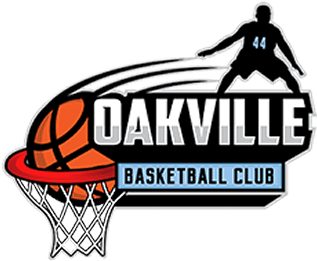POLICIES AND CODES OF CONDUCT
Oakville Basketball Club
COACH’S CODE OF CONDUCT
Oakville Basketball Club is fully committed to safeguarding and promoting the well-being of all its members. The club believes that it is important that members, coaches, officials, administrators, parents, and spectators associated with the club should, at all times, show respect and understanding for the safety and welfare of others. Therefore, all those associated with Oakville Basketball Club should comply with this Code of Conduct.
- Be reasonable in your demands on young players’ time, energy, and enthusiasm.
- Teach your players that the rules of the game are mutual agreements that no one should evade or break.
- The scheduling and length of practice times and competition should take into consideration the maturity level of players.
- Avoid over-playing the talented players. The “just-average” players need and deserve, equal time.
- Remember that children play for fun and enjoyment and that winning is only part of their motivation. Never ridicule children for making mistakes or losing a game.
- Ensure that equipment and facilities meet safety standards and are appropriate to the age and ability of the players.
- Develop team respect for the ability of opponents as well as for the judgment of officials and opposing coaches.
- Actively discourage the use of performance-enhancing drugs and the use of alcohol, tobacco, and illegal substances.
- Be aware of the role of the coach as an educator. As well as imparting knowledge and skills and promoting desirable personal and social behaviors.
- Seek to keep abreast of changes in your sport; ensure that the information used is up to date, appropriate to the needs of players, and takes account of the principles of growth and development of children.
- Do not tolerate acts of aggression.
- Provide feedback to players and other participants in a manner sensitive to their needs. Avoid overly negative feedback.
- Recognise players’ rights to consult with other coaches and advisers. Cooperate fully with other specialists (for example, sports scientists, doctors, and physiotherapists) and follow the advice of a physician when determining when an injured player is ready to recommence play.
- Treat all players fairly within the context of their sporting activities, regardless of gender, race, place of origin, athletic potential, color, sexual orientation, religion, political beliefs, socio-economic status, and other conditions.
- Encourage and facilitate players’ independence and responsibility for their own behavior, performance, decisions, and actions.
- Involve the players in decisions that affect them.
- Ensure any physical contact with players is appropriate to the situation and necessary for the player’s skill development. Avoid situations with your players that could be construed as compromising.
- Do not exploit any coaching relationship to further personal, political, or business interests at the expense of the best interest of your players.
- Be acutely aware of the power that you as a coach develop with your players in the coaching relationship and avoid any sexual intimacy with players that could develop as a result.
